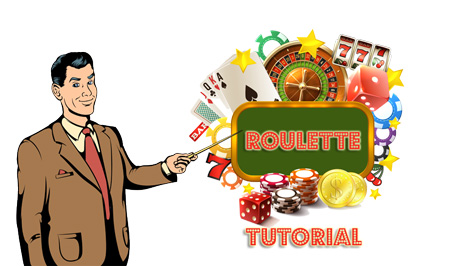Roulette History
You’ve probably tried your luck at Roulette, but do you know its rich history? Invented by Blaise Pascal in the 17th century, it’s evolved from a failed physics experiment to a gambling staple. As it journeyed from France to America, an extra zero was added, increasing the house edge. Now, it’s not just a game—it’s a symbol of Monte Carlo, a recognizable casino table layout and one of the most popular casino games worldwide. Let’s dive into Roulette’s intriguing past.
Roulette wheel inventor:
The Roulette wheel was invented by Blaise Pascal, a French physicist, inventor, and mathematician.
House Edge Increases:
Francois and Lois Blanc added a single zero to the Roulette wheel in 1842, increasing the house edge.
The Double Zero:
The American Roulette wheel introduced a double zero in the 1800s, further increasing the house edge.

The Birth and Evolution of the Roulette Wheel
You’d be amazed to learn that the roulette wheel you see in casinos today was initially a failed experiment by Blaise Pascal, a French physicist, and has remained relatively unchanged for centuries. This anomaly sets the stage for the birth and evolution of the roulette wheel.
The year 1842 saw an interesting twist in roulette history. Two brothers, Francois and Lois Blanc, added a single zero to Pascal’s original design. Cleverly enough, this increased the house edge giving casinos more profit potential.
When roulette made its way into America in the 1800s, another adjustment was made. A double zero was introduced on these shores, creating American roulette with 38 slots—numbers one through thirty-six plus zeros ‘0’ and ’00’. No surprise here; it gave even bigger advantage to the house!
Over time, your beloved roulette became synonymous with Monte Carlo’s gambling culture as European players favored single-zero version while Americans embraced their double-zero spin-off enthusiastically.
The Journey of Roulette to America
It’s fascinating how the game made its journey to the United States in the 1800s, undergoing changes along the way. You see, roulette was a European invention, but as it crossed the Atlantic, it quickly became an American favorite.
French immigrants brought their beloved wheel to New Orleans – America’s gambling capital of that era. However, your fellow Americans weren’t content with merely importing roulette; they modified it. They added a double zero slot to the wheel. This minor alteration dramatically changed gameplay and increased house advantage.
This American version spread like wildfire across saloons and riverboat casinos throughout the nation. It wasn’t long before this “American Roulette,” with its additional double-zero pocket, became a staple in every casino from Las Vegas to Atlantic City.
Modern Day Roulette
In today’s casinos, you’ll find that the wheel has maintained its classic charm while evolving to suit modern gaming environments. The game of roulette, as it exists today, is a fascinating blend of historical tradition and cutting-edge technology.
Modern day roulette still revolves around the iconic wheel. You place your bets on a table that corresponds to the numbered slots on this wheel. With each spin, you’re engaging with centuries of gambling history. Yet, look closer. In many casinos now, electronic scoreboards display recent winning numbers for your analysis. You’ll find online platforms offering live dealer games where you can enjoy roulette from your home.
The transition into the digital era hasn’t dampened the allure of roulette but rather enhanced accessibility and variety. There are now more ways than ever to engage in this enduring casino favorite: European Roulette, American Roulette, French Roulette; each variant offers a unique twist on Pascal’s original concept.
Despite the changes though, one thing remains constant – the thrilling uncertainty as you watch the ball dance about before settling into its final resting place upon that spinning wheel. That’s the magic of modern day roulette – an old game continuously reinvented for every generation.
Popularity of Roulette
Despite its age, the game’s popularity hasn’t waned and it continues to be a favorite among both seasoned gamblers and newcomers alike. The roulette wheel has become an iconic symbol of casinos worldwide, embodying the thrill and unpredictability that make gambling such an alluring pursuit.
Your attraction to roulette isn’t surprising given its storied history. From Blaise Pascal’s mathematical experiment in the 17th century to Francois and Lois Blanc’s crafty addition of a single zero, amplifying the house edge, this game has always been about chance and strategy.
The American variation introduced an even greater challenge with a double zero slot, further increasing the house advantage. Yet that didn’t deter you or countless others from trying their luck at predicting where the ball will land. With each spin of this mesmerizing wheel comes renewed hope for a win.
The popularity of roulette lies in its simplicity – no complicated rules or strategies to learn – just place your bet and wait for lady luck. But remember – while winning may bring temporary joy, it’s ultimately about enjoying the game itself; after all, isn’t that what gambling is truly about?
Frequently Asked Questions
Who Were Some of the Prominent Figures in its History Other Than Blaise Pascal and Francois Blanc?
Apart from Blaise Pascal and Francois Blanc, Lois Blanc also played a vital role in Roulette’s history by adding a single zero to the wheel. American Roulette with double zeros is another prominent development.
What Were Some of the Major Changes or Variations in Game Rules Over the Years?
Over time, you’ll notice significant changes in roulette rules. Originally, there was no zero. Then the Blancs added a single zero. Later, American Roulette introduced a double zero, increasing the house’s edge significantly.
Are There Any Significant Differences Between the European and American Versions, Apart From the Double Zero?
Yes, apart from the extra zero, American roulette also has a different sequence of numbers on the wheel. Additionally, your betting options differ slightly due to the additional double zero in the American version.
How Has Its Popularity Impacted the Overall Gambling and Casino Industry?
Roulette’s popularity has significantly impacted the gambling industry. It’s introduced exciting strategies and odds, enticing more players to casinos. Its simplicity attracts beginners while its depth keeps seasoned gamblers engaged, boosting casino revenue globally.
Our Favorite Online Casino
Discover our top pick for online casinos, featuring user reviews, ratings, and exclusive bonuses.
Slots.LV
Slots.lv Casino is a popular online casino known for its extensive game library, excellent customer service, and fast payouts. It offers over 400 games including slots, table games, and live dealer options, and provides generous bonuses such as a welcome bonus up to $3,000 and a loyalty rewards program. The casino ensures a secure gaming environment with advanced security measures and 24/7 customer support.
What’s included
Extensive Game Selection
Generous Bonuses
Excellent Customer Service
Secure Gaming Environment
BONUS
$3000 chips
Sign Up NowWe may receive affiliate commissions if you sign up for a casino through our links.



